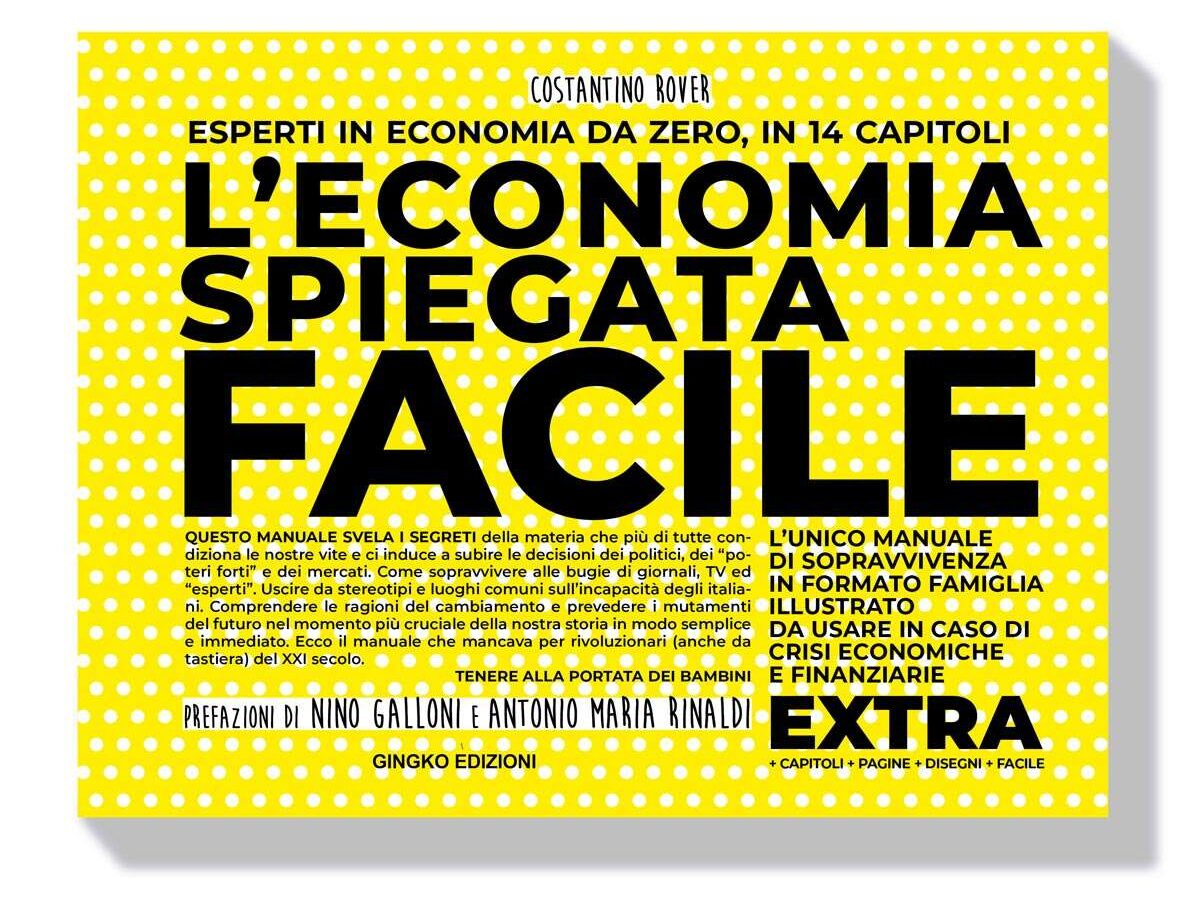Where did the Germans get all this money?

The recent intention of the Germans to lighten the bill in the energy bills of citizens and businesses for a total of 200 billion euros in non-repayable funds to deal with the energy crisis added to the international one has caused a sensation. Such a decision goes against the European Treaties, so it is normal that the chorus of criticism has been raised by many states, including Italy. Despite this, Germany has decided to keep going. However, beyond the political question, many are wondering where the Germans find all this money.
If it is true that Italy has managed to find just 15 billion, the reader will be tempted to think that it is thanks to the Teutonic ability to be the best.
Where do the Germans find all that money?
To answer this question we should take a look at the German state budgets of the last 20 and more years. A rather complex and boring job to do. However, there is an index that makes our life easier, because it can be summarized in a single graph.
What we are referring to is the trade balance, or that value that tells us whether a state is importing more or less than it is exporting.
In other words, the overall trade balance of a state tells us if it buys or sells more.It will be evident even to those who do not chew the economy that if a subject sells more than what he buys, he will find a profit in his pocket, while those who buy more than it sells will be in debt on the trade balance.
We had already talked about the trade balance in the old article entitled: The importance of the trade balance. We save the Made in Italy .
This time we have decided to draw on more recent information directly from the EXTRA easy explained economics book . The expanded edition of the best seller illustrates a whole series of evidences that teach us the importance of commercial relations between nations, which we will also mention here.  As we know, Italy is always under the lens of Europe and the markets, so much so that it has transformed our politicians into a sort of managers of their interests.
As we know, Italy is always under the lens of Europe and the markets, so much so that it has transformed our politicians into a sort of managers of their interests.
It is worth remembering that we have always done our homework, as the data shows.
The index that we see below represents the main constraint on public spending that prevents us from doing like the Germans.

 Comparison between some European countries on the 3% constraint. Charts taken from the easy explained economics book.
Comparison between some European countries on the 3% constraint. Charts taken from the easy explained economics book.
ORDER NOW
AND YOU ARE THE FIRST TO RECEIVE IT
DISCOUNTED

for pre-orders only
€ 27 INSTEAD OF € 32
![]()
SAFE PURCHASE
ORDER NOW
Another aspect on which Europe does not compromise with Italy, but allows everything to both the Germans and the French is the nationalization of strategic companies and sectors.
Currently there is talk of energy-related companies, but in the past they have been nationalized or helped with public money, therefore against the same European rules demanded by Germany, airlines, banks, ports, etc. 
From page 191 of the book, The EXTRA easy explained economy .

From page 191 of the book, The EXTRA easy explained economy .
But where does Germany get the money to do all this?
To get to the heart of the matter, what allows Germany to do what it wants, in defiance of the European treaties, are three things:
- the fact that she is in charge of Europe;
- that the European structure conforms to the mercantilist characteristics of the Germans;
- The favorable trade balance follows from the first two.
The competitive model of the Germans based on mercantilism
A correct distribution of resources would allow both the domestic economy and the world economy to thrive.
If this principle is not respected, inequalities between rich and poor, between powers and satellite states, between predators and prey will increase. This is what commercialism wants.
In order for trade to take place correctly, there must be a balance between import and export, otherwise it means that if someone exports too much, someone else will import more than what they produce for themselves, becoming dependent or dominated by stronger economies. And when the weaker economy runs out of money to import it will end up in debt because in the meantime it will have lost its productive capacity.
You call it if you want solidarity, but the basic problem is: if everyone thinks only of selling, who is it that buys?
This is a question that mercantilists do not ask themselves. And like the Germans, neither the Chinese nor the Americans ask.
In a nutshell, the German trade balance tells us that they sell more than they buy from others, that is, that they finance themselves with other people's money.
"China is a great opportunity"; to say it was the same author of the famous saying: “With the Euro we will work one day less, earning as if we worked one day more.”, that is Romano Prodi.
Let's see if in this case he turned out to be a good prophet, as he already did with the Euro. China is only the tenth economy to which we export Made in Italy (2.7% of total exports).
A little bit, given the number of its total population. However, it is the third country from which we import the most after Germany and France (7.5% of total imports); exports of just over 13 billion; imports for over 31 billion. A trend that has worsened even since the signing of the agreement signed by Foreign Minister Di Maio with the Memorandum of Understanding with China *. So we import 2.4 times more from China than we export despite China being populated by 1.4 billion people and Italy by less than 60 million. We are talking about a net transfer of wealth from Italy to China …
All this without counting the skills transferred over the years through the relocations that have in fact placed patents and know-how in the hands of the Chinese. A similar argument can be made about Germany violating trade surplus treaties. Its trade balance exploded with the entry of the Euro.
THE ECONOMY HAS BECOME EXTRA EASY

for pre-orders only
€ 27 INSTEAD OF € 32
![]()
SAFE PURCHASE
ORDER NOW
Because Germany can help German citizens to cope with expensive energy with 200 billion non-repayable funds (in defiance of the European rules requested and obtained by the Germans who apply them on themselves only when it suits them) while Italy has only 15 billion? Let's see where the Germans get all this money from
Italy vs. China and Germany: two and more negative trade balances and side effects of mercantilism on economies
"China is a great opportunity" ; to say it was the same author of the famous saying: "With the Euro we will work one day less, earning as if we worked one day more." , that is Romano Prodi (of which you can read the complete portrait of the atrocities here ). Let's see if in this case he turned out to be a good prophet, as he already did with the Euro. China is only the tenth economy to which we export Made in Italy (2.7% of total exports).
A little bit, given the number of its total population. However, it is the third country from which we import the most after Germany and France (7.5% of total imports); exports of just over 13 billion; imports for over 31 billion. A trend that has worsened even since the signing of the agreement signed by Foreign Minister Di Maio with the Memorandum of Understanding with China *. So we import 2.4 times more from China than we export despite China being populated by 1.4 billion people and Italy by less than 60 million. We are talking about a net transfer of wealth from Italy to China …

From page 166 of the book, The EXTRA easy explained economy .
All this without counting the skills transferred over the years through the relocations that have in fact placed patents and know-how in the hands of the Chinese. A similar argument can be made about Germany violating trade surplus treaties. Its trade balance exploded with the entry of the Euro.
Just as China has become the first economy in the world, so Germany has found the 200 billion non-repayable, plus all those with whom it saves strategic companies and saved its banking system (in defiance of the European rules requested and obtained precisely by the Germans who apply them to themselves only when it suits them) while Italy has only 15 billion.
Selling much more than you buy from others means exporting goods and importing money.
That is, it means paying your own expenses with the money of others. Just like the Germans do. Guess when their free ride started.

From page 166 of the book, The EXTRA easy explained economy .
To find out all the tricks used by the Germans, go to the article dedicated to the false myth of Germany .

Thanks to our Telegram channel you can stay updated on the publication of new articles of Economic Scenarios.
The article Where did the Germans get all this money? comes from ScenariEconomici.it .
This is a machine translation of a post published on Scenari Economici at the URL https://scenarieconomici.it/dove-trovato-tutti-questi-soldi-i-tedeschi/ on Wed, 26 Oct 2022 07:29:40 +0000.
